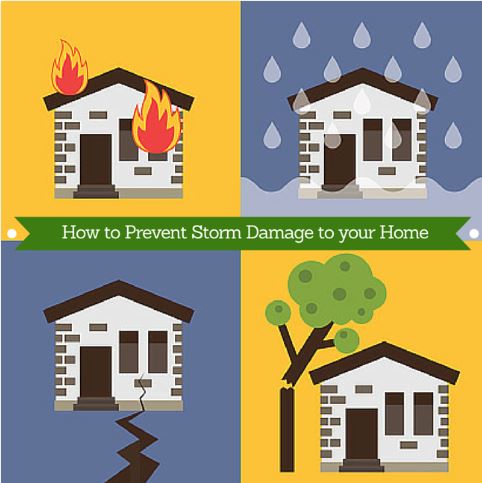
It’s important to understand how to avoid storm or weather related damage around your home. There are several smart things you can do now to be prepared for a storm that hits later.
Don’t forget the story of Cook customer Dorothy Baldwin of Florida whose property and life were most likely saved by her strong, durable Cook shed!
From summer heat, to spring rains, and those unexpected things like wind storms and wild fires, here are the smart ways to mitigate future damage to your property.
Extreme Heat
- If you have storm windows, keep them up all year. Draw the curtains or blinds for the windows receiving direct sunlight during the daylight hours. Another good investment, to reduce the amount of heat getting into your home, are outdoor awnings.
- Insulate your properly by making sure all air conditioning window units are fitted tightly and all central air ducts are working correctly. Use weatherstripping around doors and windows and replace any pieces that are missing or cracked.
- If temperatures drop overnight, open windows to let the breeze in. But remember to close them before the temperatures rises again the next day.
Heavy Rains and Flooding
- Because increased rains can cause exterior wood to rot, cover your deck, railings and other exterior elements with a zinc-based wood preservative.
- Keep eavestroughs and drains clean and clear so water easily flows from your roof and away from your home.
- If you run a sump pump in your basement, check to make sure it’s running properly. Also, think about investing in back-up power options like a generator.
- Ensure that your furnace, water heater and electric panels are elevated at all times.
Highs Winds
- Check your roof at least once a year to make sure all components are securely fastened. All the screws or nails should be in place and ready to hold up during extreme winds.
- Whenever you plant trees, make sure they are placed a safe distance away from your house. It’s a good idea to research the type of trees you are planting to find out if they are a good fit for your location. Remember to clean and discard any dead branches or trees prior to a big storm.
- Shutters help protect windows and are a very smart investment. Reinforce all outside doors with additional heavy duty deadbolts at the top and bottom and make sure all hinges are securely fastened.
Wild Fires
- Create a safety zone around your home. In this area make sure to keep vegetation to a minimum and remove vines, shrubbery and any tree branches from within 15 feet of the ground, roof or power lines.
- Research the type of tree before planting it. If you are in an area that frequently experiences wild fires, choose options that are more fire resistant. Avoid pines, junipers and firs and mulch that is made of cedar.
- Remove all dead branches from trees and shrubs and make sure your grass is always cut to a maximum of 2 inches.
- Keep firewood piles far away from the house (stored in your Cook shed perhaps). Also, all barbecue grills and propane tanks should be at least 15 feet from your home and covered with a screen guard.
For more ideas on how to transform your Cook into a place for wood storage or a place for anything you need, download our free resource below!
{{cta(‘e494e7e0-360b-407c-83f0-dd3bfc6a62fe’,’justifycenter’)}}

